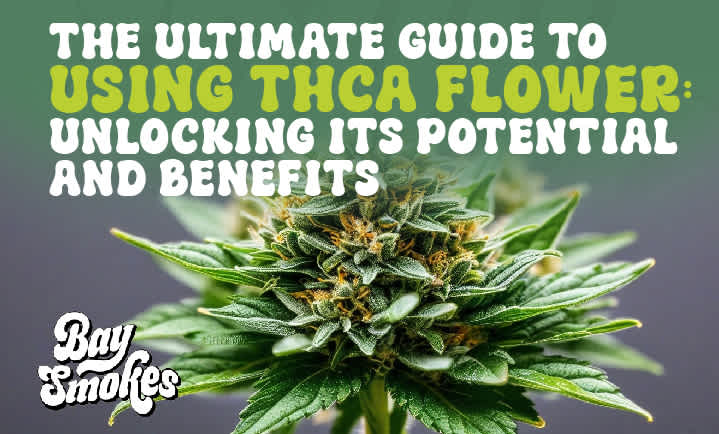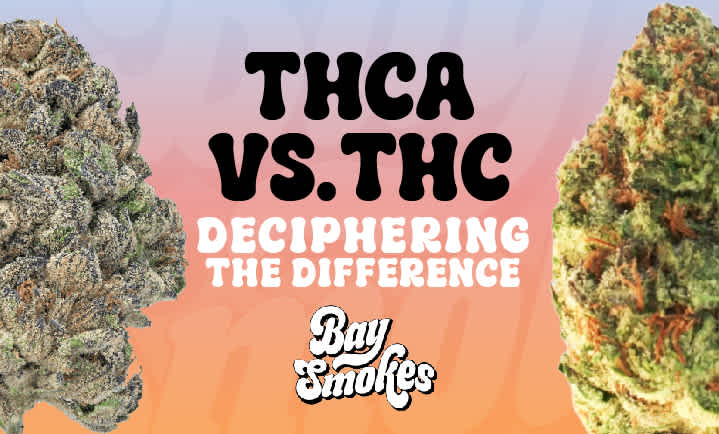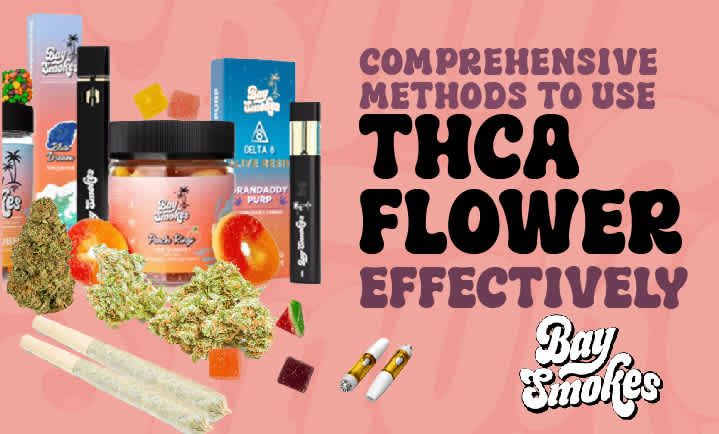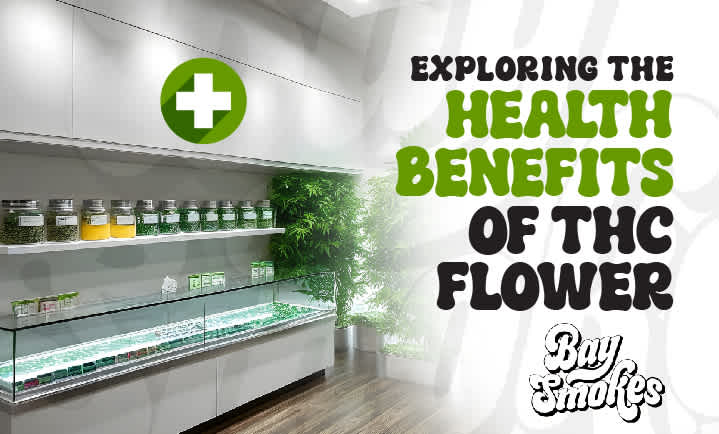Your Cart
Your cart is empty
Fill in your cart with amazing items
The Ultimate Guide to Using THCA Flower: Unlocking Its Potential and Benefits
January 31, 2024

The Ultimate Guide to Using THCA Flower: Unlocking Its Potential and Benefits
Welcome to the world of THCA Flower, a remarkable component of the cannabis plant that’s garnering significant attention for its unique properties and benefits. As a precursor to THC, THCA (tetrahydrocannabinolic acid) holds a special place in the landscape of cannabinoids, offering a spectrum of potential benefits without the psychoactive effects typically associated with cannabis. This guide is dedicated to unveiling the mysteries of the THCA flower, mainly focusing on the THCA hemp flower. We’ll dive into how to use it effectively, explore its myriad benefits, and navigate its legal nuances. Whether you’re a seasoned cannabis enthusiast or new to the scene, this guide aims to provide comprehensive, friendly, and informative insights into maximizing the potential of THCA flower. Join us as we embark on this enlightening journey, understanding the integral role of THCA in the cannabis world.

Understanding THCA Hemp Flower: What It Is and How It Differs
Exploring the Nature of THCA Hemp Flower
THCA hemp flower is a fascinating aspect of the cannabis world, primarily because it contains high levels of tetrahydrocannabinolic acid (THCA), a non-psychoactive cannabinoid found in the raw cannabis plant. Unlike THC flower, which is known for its psychoactive effects, THCA hemp flower doesn’t produce a ‘high’ in its raw form. The reason hemp doesn’t produce a high is because THCA is a precursor to delta 9 THC, the primary psychoactive compound in cannabis. It’s only when THCA is heated or aged that it converts into delta 9 THC, leading to psychoactive effects.
Comparing THCA Hemp Flower and Marijuana Buds
The critical difference between THCA hemp flower and marijuana buds lies in their chemical composition. While both come from the same plant species, marijuana typically has high levels of delta-9 THC, making it psychoactive. In contrast, THCA hemp flower contains minimal delta 9 THC, aligning with the legal threshold defined in the 2018 Farm Bill. This bill distinguishes hemp from marijuana based on THC content; hemp must contain less than 0.3% delta 9 THC on a dry weight basis, making THCA hemp flower a legal, non-psychoactive alternative.
Legal Status Post-2018 Farm Bill
The legal landscape of THCA hemp flower shifted significantly with the passing of the 2018 Farm Bill. This legislation federally legalized hemp and its derivatives, recognizing the distinction between hemp and marijuana based on THC content. Products like THCA hemp flower that comply with this THC threshold fall under legal territory. However, it’s essential to note that while the Farm Bill set the stage for legality, the Food and Drug Administration (FDA) continues to regulate the distribution and marketing of hemp products, including those containing THCA.

THCA vs. THC: Deciphering the Difference
Unraveling the Mysteries of THCA and THC
When delving into the complex world of cannabinoids, understanding the distinction between THCA (tetrahydrocannabinolic acid) and THC (tetrahydrocannabinol) is crucial. Both compounds originate from the cannabis flower, yet they possess fundamentally different characteristics and effects. THC is well-known for its psychoactive properties, responsible for the ‘high’ associated with cannabis use. In contrast, THCA is the acidic form of THC present in raw and unprocessed cannabis. It’s important to note that high THCA flower, prevalent in certain hemp plants, contains significant THCA levels but negligible THC, rendering it non-psychoactive.
THCa: The Non-Psychoactive Precursor
THCa stands out in the cannabis family for being a non-psychoactive cannabinoid, and being non-psychoactive means that consuming THCa products, such as raw cannabis juices or edibles, won’t produce the intoxicating effects typically linked with THC. This quality of THCA is particularly appealing to those seeking the benefits of cannabinoids without the psychoactive experience. Moreover, THCA’s non-psychoactive nature also implies that it generally won’t show up on drug tests designed to detect THC. However, users should be aware that THCA can convert to THC under certain conditions, potentially influencing drug test outcomes.
The Transformation: Decarboxylation of THCA to THC
The conversion of THCA into THC is a fascinating chemical process known as decarboxylation. This transformation occurs through the application of heat, such as when smoking, vaping, or baking cannabis products. Decarboxylation removes a carboxyl group from THCA, converting it into the psychoactive THC. This process is essential for users seeking the psychoactive effects of cannabis, as raw cannabis flowers high in THCA won’t induce a high until heated. Understanding this conversion is vital, especially for individuals using cannabis for specific therapeutic purposes, as the effects of THCA and THC can vary significantly.
The Potency of THCA Flower: Setting Expectations
Understanding the Potency Levels in THCA Flower
When exploring the realm of THCA flower, it’s crucial to understand its potency and how it differs from other cannabis products. THCA flower is distinguished by its high THCA content, the acidic form of THC. However, it’s essential to note that THCA is a non-psychoactive compound in its raw state. The potency of THCA flower lies not in its immediate effects but in its potential when heated or aged, as THCA converts into THC. This unique characteristic means that the THCA hemp flower can cater to a variety of needs and preferences, particularly for those seeking the benefits of cannabis strains with high THCA but low THC levels.
Comparing THCA Flower with CBD-Rich Hemp Flower
Contrasting THCA flower with CBD-rich hemp flower provides further insights into its potency. While both are derived from hemp plants, their cannabinoid profiles differ significantly. CBD-rich hemp flower is known for its high levels of CBD (cannabidiol) and typically low THC levels. CBD, like THCA, is a non-psychoactive compound but interacts differently with the body’s receptors. On the other hand, THCA flower, with its high THCA content, holds the potential to become psychoactive when decarboxylated, converting into THC. This conversion makes THCA flower unique, offering a different spectrum of effects compared to CBD-rich hemp.
Effects of THCA in Raw Form Versus When Heated
In its raw form, THCA presents itself as a non-psychoactive compound, which means consuming THCA hemp flower in its natural state won’t produce the ‘high’ associated with THC. This quality makes it appealing to those who are interested in the therapeutic aspects of cannabis without experiencing psychoactive effects. However, when THCA is heated, as in smoking or cooking, it undergoes a chemical change, converting it into THC. This decarboxylation process activates the psychoactive properties of THC, leading to the well-known effects of THC, such as euphoria and altered sensory perception. Understanding this transformation is vital for consumers to set the right expectations and use THCA Flower in a way that aligns with their personal needs and goals.

Comprehensive Methods to Use THCA Flower Effectively
Navigating the world of THCA hemp flower can be an exciting journey, particularly when you explore how it can be consumed to maximize its benefits. Whether you’re a seasoned cannabis user or new to this realm, understanding the different methods of using THCA flower can enhance your experience and cater to your wellness needs.
Smoking and Vaping THCA Flower
Smoking and vaping, such as dabbing and pre-rolls, are popular methods for consuming THCA flower, primarily because they facilitate the transformation of THCA into THC through heat. This process, known as decarboxylation, activates the psychoactive properties of THC, offering a more potent experience. When opting for these methods, it’s important to practice moderation. The ‘Low and Slow’ approach is highly recommended, especially for beginners. Start with small quantities and low temperatures to gauge your body’s response. This method helps understand how THCA affects your endocannabinoid system and ensures a controlled, enjoyable experience.
Decarboxylation Process
Decarboxylating THCA flower is a crucial step for those looking to activate its THC content, especially when preparing edibles or tinctures. The process involves gently heating the cannabis to convert the THCA into THC, thus unlocking its full potential. To decarboxylate cannabis at home, spread your THCA flower evenly on a baking sheet and bake it in a preheated oven at around 220-245°F (105-120°C) for about 30-40 minutes. This method is efficient for activating the therapeutic benefits of THC while preserving the integrity of other cannabinoids, like CBD. Continuously monitor the temperature and time to prevent burning or under-decarboxylation.
Edible Uses of THCA Hemp Flower
Incorporating THCA hemp flower into your diet is a creative and enjoyable way to enjoy its benefits. Since THCA is non-psychoactive in its raw form, it can be used in various food and drink recipes without inducing the ‘high’ associated with THC. THCA-infused smoothies and salads are fantastic options. For a smoothie, blend raw THCA flower with your favorite fruits, vegetables, and a liquid base like almond milk. For salads, finely chop the raw flower and sprinkle it over your salad for an extra wellness kick. For a convenient option, consider THCA gummies, which provide a measured dose of THCA in a tasty, edible form. These methods allow you to enjoy the potential therapeutic benefits of THCA, catering to a range of medical conditions and wellness goals.

Exploring the Health Benefits of THCA Flower
THCA flower, distinct from CBD flower, is gaining recognition for its potential health benefits. Research indicates that THCA possesses analgesic and neuroprotective qualities, suggesting its efficacy in pain relief and neural health. Various flower strains available at dispensaries often highlight the THCA percentage, guiding users in selecting the right product for their therapeutic needs. Though less psychoactive than delta-8 THC, THCA’s therapeutic applications are vast, ranging from reducing inflammation to potentially aiding in neurological disorders. As research advances, THCA flower continues to emerge as a promising component in the wellness and medical cannabis landscape.
Demystifying the High: Does THCA Flower Induce Euphoria?
Raw THCA flower, rich in trichomes, is known for its non-psychoactive effects, making it distinct in the cannabis landscape. Despite its high THCA levels, in its unheated state, it doesn’t induce the euphoria typically associated with THC. However, when heated, THCA converts into THC, leading to psychoactive effects. Interestingly, as THCA ages, it can also produce CBN (cannabinol), another cannabinoid with different properties. This transformation underscores the diverse potential of cannabis compounds like CBDA, CBG, and CBGA. Understanding these dynamics is essential for appreciating the complex nature of cannabis and the implications of THCA percentages in various products.
Selecting Quality THCA Flower: Key Considerations
Choosing high-quality THCA flower involves several critical factors. Potency is paramount; look for clear information on THCA percentages, indicating strength. Appearance matters, too; a healthy, well-cultivated THCA flower, whether sativa or indica, should have a vibrant color and abundant trichomes. Aroma and flavor are also telling; a rich, pleasant scent and taste are quality signs. Don’t overlook purity; ensure the flower is free from contaminants and pesticides. Finally, consider the terpenes profile. Terpenes contribute not only to the aroma and flavor but also to the therapeutic effects. A diverse and robust terpenes presence often signifies a superior THCA flower.
Legal Perspectives: Understanding the Legality of THCA Flower
Post-2018 Farm Bill, THCA flower’s federal legal status has evolved significantly. This bill distinguished hemp, including THCA flower, from marijuana as a controlled substance based on THC content. However, a critical disclaimer is the importance of understanding state-specific regulations. While federally legal under certain THC thresholds, the legality of THCA flower can vary by state. Consumers and businesses must stay informed about their local legal status and adhere to state laws. This awareness ensures compliance and helps navigate the complex landscape of cannabis legality with confidence.
Diverse Strains of THCA Flower: Finding Your Perfect Match
THCA hemp flower comes in various strains, each offering unique characteristics and effects. Sativa strains are known for their energizing and uplifting effects, often preferred for daytime use. They promote creativity and focus, making them popular for those seeking a cerebral experience. Indica strains, conversely, are associated with relaxation and calming effects, ideal for evening or relaxation purposes. They often provide a sense of profound physical ease. Hybrid strains blend the qualities of Sativa and Indica, offering a balanced experience. Understanding these differences allows you to select a THCA flower strain that aligns with your desired effects and personal preferences.
Conclusion: Embracing the Versatility of THCA Flower
In conclusion, the THCA flower stands out as a versatile and intriguing component in the world of cannabis. We’ve explored its non-psychoactive nature in raw form and its transformation into THC when heated. Understanding the differences between THCA and other cannabinoids, such as CBD and delta-8 THC, allows for a more informed approach to consumption. The variety in strains - Sativa, Indica, and hybrid - caters to diverse preferences and needs, highlighting the flower’s adaptability. Staying updated on state-specific regulations is crucial with the evolving legal landscape after the 2018 Farm Bill. When selecting a THCA flower, considering factors like potency, aroma, flavor, and purity ensures a quality experience.
As we embrace THCA flower’s potential, we must advocate for responsible and informed use. Whether you’re exploring its therapeutic benefits or curious about its unique properties, THCA flower offers a world of possibilities. By staying informed and mindful, you can fully appreciate and responsibly enjoy the myriad benefits that THCA Flower has to offer.
GET DISCOUNTS EVERY WEEK
Legal Disclaimer: Bay Smokes products are not approved by the FDA to diagnose, treat, prevent, or cure any illnesses. All products are compliant with the US Farm Bill and under 0.3% THC. Bay Smokes products and website are intended for ADULT use only. Full disclaimer in Terms of Service. Delta8 or other Hemp-Derived THCs will not be shipped to states where the product has been expressly banned. Product availability varies from state to state per each product’s regulation.
© 2024 Bay Smokes, LLC
62 NE 167th st, Miami, FL 33162